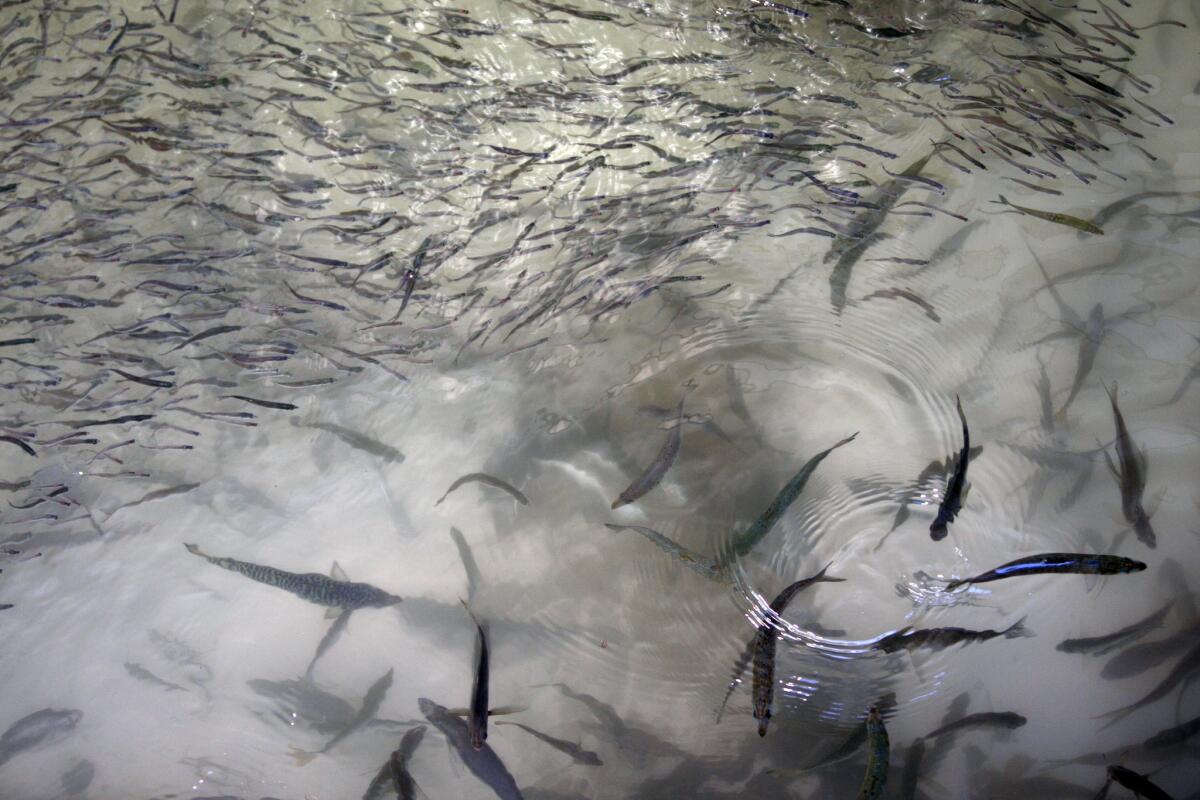Steep drop in coastal fish found in California power plant records

- Share via
Fish populations in Southern California have dropped 78% over the last 40 years, according to a new study.
Scientists consulted an unlikely source, sifting through records of fish caught up in the cooling systems of five coastal power plants from northern San Diego County to Ventura County. The analysis confirmed what fishing data and stock assessments had long indicated: That there has been a steep, ongoing drop in a wide variety of fish in the region over several decades.
“The coastal fish community that we have here in Southern California has changed dramatically and we can’t relate it to anything other than a regional oceanographic climate effect,” said Eric Miller, senior scientist at MBC Applied Environmental Sciences, an environmental consulting firm that conducted the research with the Scripps Institution of Oceanography at UC San Diego.
“I knew that there was a decline, but coming so close to 80% was startling to me,” Miller told the Los Angeles Times.
While the researchers don’t fully understand what is behind the large-scale shift in ocean conditions, they said it could be related to changing seawater density and rising ocean temperature from global warming.
The study ruled out overfishing as the main driver of the decline. That’s because the power plant records showed that fish such as salema, which are not harvested by commercial or recreational fishermen, have been declining at about the same rate as commonly fished species such as sardines.
Many of the fish in decline are small, schooling fish such as sardines and anchovies, known as “forage fish” because they feed larger sport fish, seabirds and marine mammals. A downturn in their numbers could be altering the structure of the marine food web and be playing a role in the malnutrition and deaths in predators like California sea lions, the researchers said.
A 2011 study by researchers at the Scripps Institution of Oceanography found that kelp bass and barred sand bass, two of the most-caught saltwater fishes in Southern California, have plummeted 90% since 1980.
Other scientists have come to alarming conclusions about the depletion of fish stocks globally since the 1950s.
Twitter: @tonybarboza







